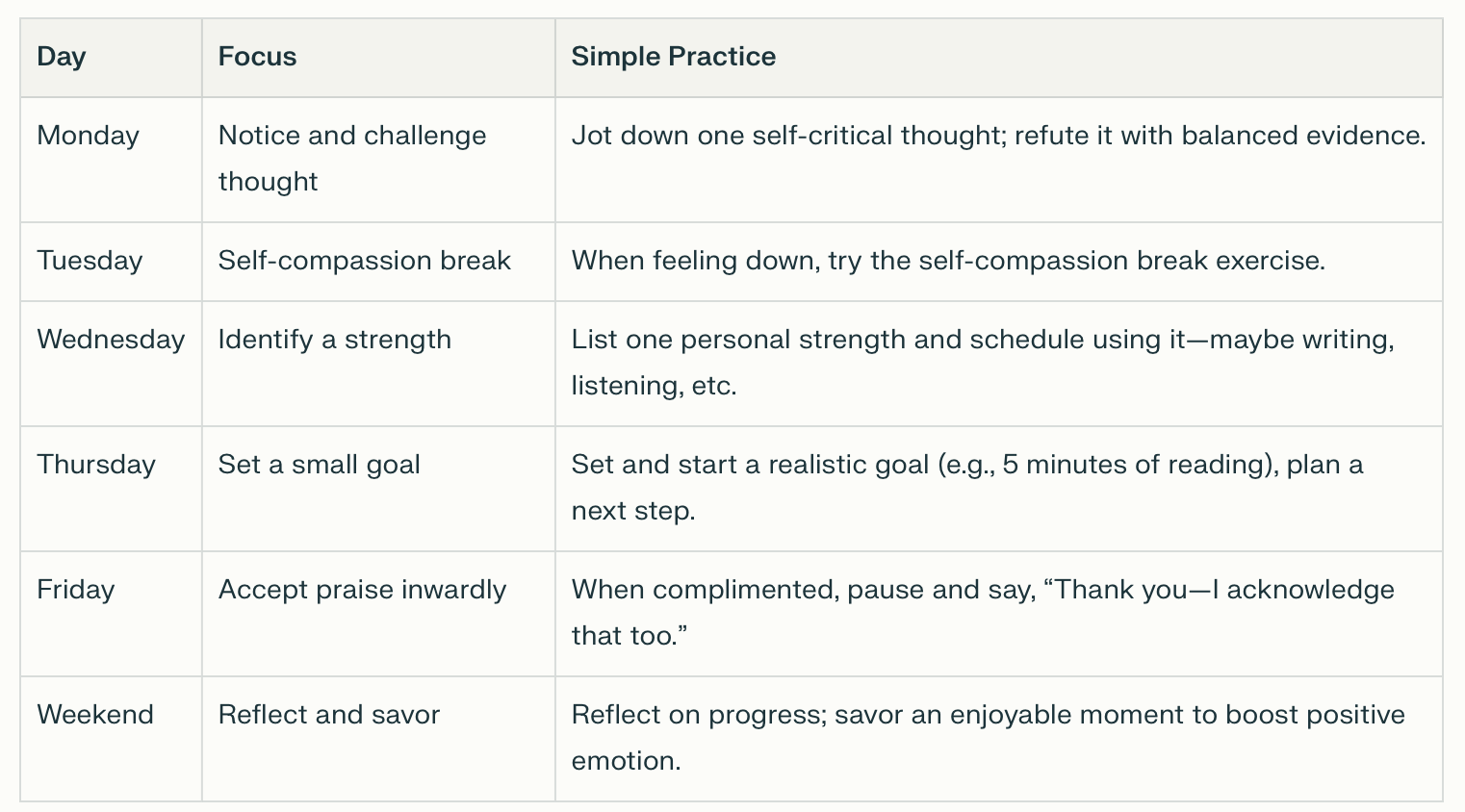Self-esteem is a term we all may have come across several times, and something we may have seen people around us struggling with. Low self-esteem can affect multiple areas of life—relationships, work, learning, and overall well-being. But the good news is: self-esteem is not fixed, and there are grounded, science-backed approaches that help improve it. This guide walks you through practical, therapist-inspired strategies, supported by credible research, to nurture a healthier, more confident relationship with yourself.
What is Self-Esteem and Why it Matters
Self-esteem refers to the way we perceive and value ourselves. It includes how much confidence we have in our abilities, how worthy we feel of love and respect, and how we evaluate our strengths and weaknesses. In other words, self-esteem is not just about liking yourself—it’s about developing a balanced, compassionate, and realistic sense of who you are.
People who maintain healthy self-esteem tend to enjoy better social connections, higher academic or career success, and greater resilience in the face of challenges—even if effect sizes are moderate (PMC). Moreover, self-esteem strongly correlates with mental wellbeing, coping skills, and lower risk for anxiety or depressive symptoms (Verywell Mind).
5 Evidence-Based Ways to Improve Self-Esteem
Below are five research-supported strategies—each simple, actionable, and described in stigma-free, accessible language:
1. Cognitive Behavioral Techniques (CBT)
Cognitive Behavioral Therapy helps you become aware of self-critical or distorted thoughts, challenge them, and replace them with more balanced, compassionate ones (Cognitive Behavioral Therapy Los Angeles).
Action Tip: Start a habit of gentle self-questioning—whenever you notice a negative thought (“I’m not good enough”), ask, “Is this true? What evidence supports or contradicts it?” Then gently reframe toward balance.
2. Cultivate Self-Compassion
Compassion-focused approaches encourage kindness toward oneself and acceptance of personal strengths and imperfections (PMC).
Try This: Engage in a "self-compassion break"—when you feel critical, pause and say softly: “This is really hard right now,” remind yourself that “others feel this too,” and offer kindness, as you would to a friend.
3. Use Your Strengths
Research shows that identifying and using your core personal strengths boosts self-esteem and well-being (Drfallonspractice).
What to Do: Reflect on what energizes or inspires you—creativity? empathy? curiosity?—and plan to use these in your daily routines or hobbies.
4. Set and Achieve Meaningful Goals
Goal-setting, even outside academic/work-related contexts, supports motivation and emotional engagement—and improves performance.

Practical Step: Write down one meaningful goal—e.g., “learn a new recipe each week.” Break it into small steps and celebrate progress. Each success builds your sense of competence and stronger belief in yourself.
5. Shift from External Validation to Inner Validation
Seeking validation from others is common, but relying on it can weaken resilience. Instead, focusing on internal recognition—valuing your own experience and growth—boosts self-worth (Vox).
Mindful Practice: When praised, pause and say to yourself, “I hear that, and I value that too.” Notice how your internal state responds, rather than brushing compliments off.
How These Strategies Work Together
These approaches are complementary and build layered strength:
- CBT helps you reframe negative thinking in the moment.
- Self-compassion softens harsh internal criticism after setbacks.
- Strength-based focus reminds you of what you bring to the table.
- Goal setting feeds your sense of agency through real achievements.
- Internal validation supports a stable, autonomous self-image—not dependent on social approval.
Putting It Into Practice: A Sample Weekly Plan

Conclusion
Improving self-esteem takes intentional steps—but they're doable and grounded in evidence. Start by mindfully noticing self-criticism, practicing kindness toward yourself, leaning into your strengths, setting manageable goals, and validating yourself from within. Over time, these habits cultivate a more confident, resilient sense of self—one rooted in authenticity, not perfection.
FAQs
1. Can self-esteem really be improved?
Yes. Research shows that self-esteem is not fixed—it can be strengthened through practices like cognitive restructuring, self-compassion, and setting meaningful goals (Psychology Tools).
2. How long does it take to build healthy self-esteem?
There’s no set timeline. For some, small changes can help in weeks, while others may need months of consistent practice or professional support. Think of it as a gradual process, not a quick fix.
3. What’s the difference between self-confidence and self-esteem?
Self-confidence refers to belief in your abilities for specific tasks, while self-esteem is your overall sense of self-worth and value. Both are important but not the same.
4. Can therapy help with low self-esteem?
Absolutely. Approaches like Cognitive Behavioral Therapy (CBT) and Compassion-Focused Therapy are well-researched and effective in addressing negative thought patterns and fostering self-acceptance (PMC).
5. Is low self-esteem linked to mental health conditions?
Low self-esteem itself is not a disorder, but it can increase vulnerability to anxiety, depression, or stress. Strengthening self-esteem acts as a protective factor for mental wellbeing (Verywell Mind).

.png)
.png)
.jpg)



